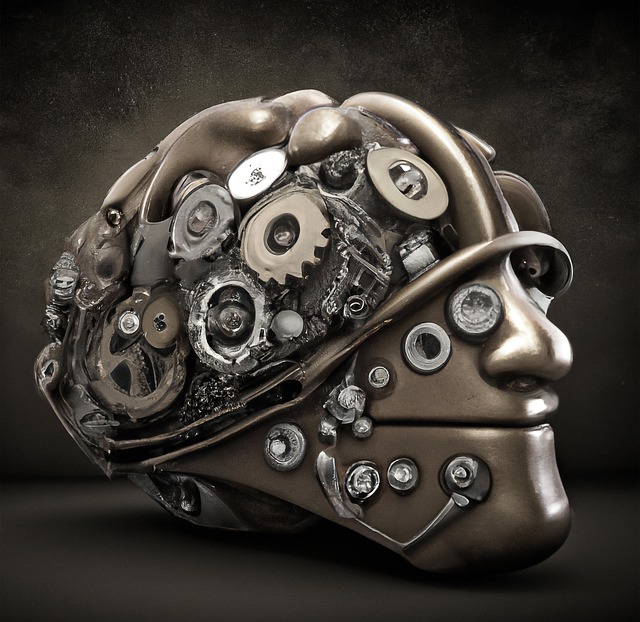Section 1: Introduction to AI Technology and its Potential in Industries
Artificial Intelligence (AI) technology has been a buzzword in the tech industry for quite some time now. From self-driving cars to virtual assistants, AI has made its way into our daily lives in various forms. But its impact goes far beyond consumer products and services. In recent years, AI has been revolutionizing industries, unlocking potential that was once thought to be impossible. In this article, we will dive into the world of AI technology and explore its potential to transform industries in ways we never thought possible.
Section 2: The Advancements in AI Technology
AI technology has come a long way since its inception in the 1950s. With the advancements in computing power and data storage, AI has evolved from simple rule-based systems to complex machine learning algorithms. These algorithms are capable of analyzing vast amounts of data, learning from it, and making decisions without human intervention. This has opened up a world of possibilities for industries, as AI can now perform tasks that were once thought to be exclusive to humans.
One of the most significant advancements in AI technology is Natural Language Processing (NLP). NLP allows machines to understand and interpret human language, enabling them to communicate with humans in a more natural way. This has led to the development of virtual assistants such as Siri, Alexa, and Google Assistant, which have become an integral part of our daily lives. NLP has also been utilized in customer service, where chatbots can handle customer queries and provide assistance without the need for human intervention.
Another significant advancement in AI technology is computer vision, which enables machines to see and interpret visual data. This has been a game-changer for industries such as healthcare, where AI-powered medical imaging can detect diseases and abnormalities at an early stage, improving patient outcomes. In the manufacturing sector, computer vision is being used for quality control, as machines can detect defects and anomalies in products with greater accuracy and speed than humans.
Section 3: The Impact of AI on Industries
The impact of AI on industries is immense and far-reaching. One of the most significant benefits of AI technology is its ability to automate tasks, reducing human error and increasing efficiency. This has led to increased productivity and cost savings for businesses. In the healthcare industry, AI-powered medical devices and software have reduced the time and cost of diagnosis, allowing for faster and more accurate treatment. This not only benefits patients but also healthcare providers who can see more patients in a shorter amount of time.
In the finance sector, AI has been a game-changer in fraud detection. With the ability to analyze vast amounts of data in real-time, AI-powered systems can quickly identify suspicious transactions and flag them for further investigation. This has helped financial institutions save millions of dollars in losses due to fraudulent activities. AI has also been utilized in the stock market, where algorithms can analyze market trends and make investment decisions without human bias.
The impact of AI on the manufacturing industry is also significant. With the use of AI-powered robots, factories can now operate 24/7, increasing production and reducing labor costs. These robots can also perform tasks that are too dangerous or tedious for humans, improving workplace safety and employee satisfaction. In the transportation industry, AI has been instrumental in the development of self-driving cars, which have the potential to reduce accidents and traffic congestion, making our roads safer and more efficient.
Section 4: The Future of AI in Industries
The future of AI in industries is bright, with endless possibilities waiting to be unlocked. As AI technology continues to evolve, we can expect to see even more significant advancements in various industries. One area where AI has the potential to make a massive impact is in the field of education. With personalized learning and adaptive learning systems, AI can cater to the individual needs of students, making education more effective and engaging.
AI also has the potential to transform the retail industry. With the use of AI-powered recommendation engines, retailers can provide personalized shopping experiences for their customers, leading to increased sales and customer satisfaction. In the agriculture sector, AI can help farmers make data-driven decisions, improving crop yields and reducing food waste. This is especially crucial in a world where the population is growing, and resources are becoming scarce.
However, with all its potential, there are also concerns about the impact of AI on the workforce. As AI technology continues to automate tasks, there is a fear that it may lead to job loss for humans. While this may be true for some industries, AI also has the potential to create new job opportunities in fields such as data science, machine learning, and AI development.
Section 5: Conclusion
In conclusion, AI technology has the potential to revolutionize industries in ways we never thought possible. With its ability to automate tasks, analyze vast amounts of data, and make decisions, AI has become an essential tool for businesses to stay competitive in today’s fast-paced world. As we continue to explore the possibilities of AI, it is crucial to ensure responsible and ethical use of this technology. With proper regulation and guidance, we can harness the full potential of AI and create a better future for industries and society as a whole.

